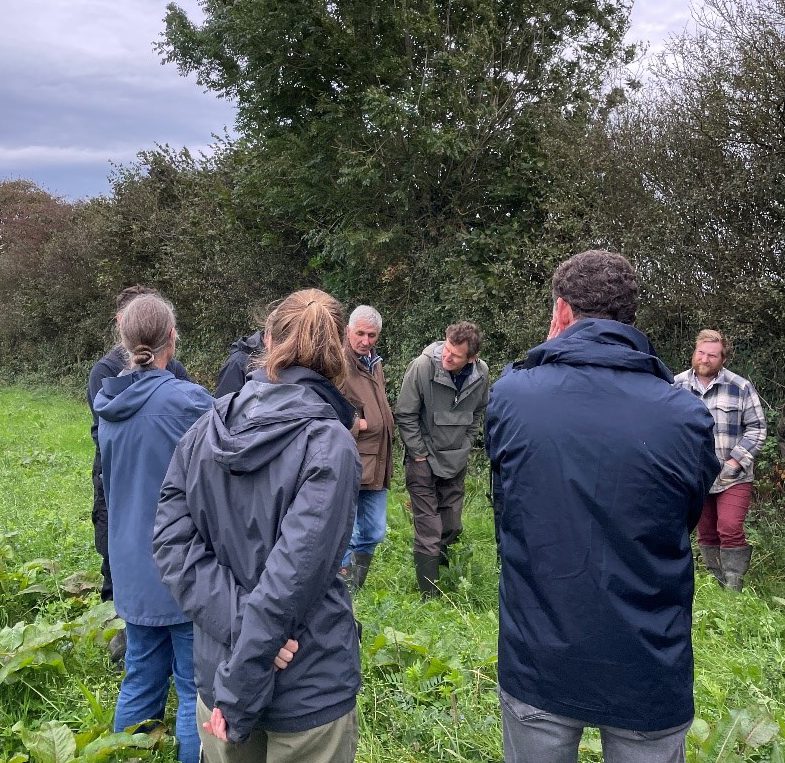
Wednesday 27th September 2023
Farm Net Zero was pleased to host Dr. Lindsay Whistance from the Organic Research Centre. Lindsay specialises in animal behaviour and welfare and her talk presented results from a range of research studies on animals in agroforestry systems. This event was made possible with thanks to the National Lottery Community Fund who fund the Farm Net Zero project.
The talk was hosted by Demo Farmers, Mike and Sam Roberts, at Blable, Wadebridge. Mike and Sam spoke about the different motivations for tree planting, with Mike being interested in trees with a useful end value (having experience of growing a small fir plantation on the farm) and Sam wanting to learn more about the benefits that trees can provide to cattle daily liveweight gain in their rotational grazing system.
Firstly, Lindsay explained that good welfare is about maintaining homeostatic equilibrium – or balance, both physiological and emotional. Most of an animal’s daily behaviour is about trying to maintain that balance, and farming should aim to support this wherever possible.
Lindsay spoke about three main themes of animal behaviour and welfare in agroforestry systems. The first was temperature regulation; if animals are too hot or too cold, then they will spend energy on trying to reach a balance. Where there is access to trees, animals are able to reach that balance faster as the trees provide shade and shelter from wind and rain. This is particularly important as climate change brings greater extremes of weather.
The second theme was the feed value of browsing on trees. Leaves on a number of tree species have been analysed and found to contain high levels of micronutrients and trace elements. This can provide additional benefits to the animal’s diet.
Finally, Lindsay spoke about the calming effect trees have. There is evidence that animals in woodland have better social relationships with less fear and aggression.
Overall, if livestock are in good welfare then they are able to use energy for fulfilling their potential. This improves efficiency of livestock production, which has benefits economically and for the farm’s carbon footprint.
Key takeaways:
- Most livestock species benefit from access to trees/woodland.
- Incorporating trees into farming systems helps to reduce the carbon footprint.


Recent Comments